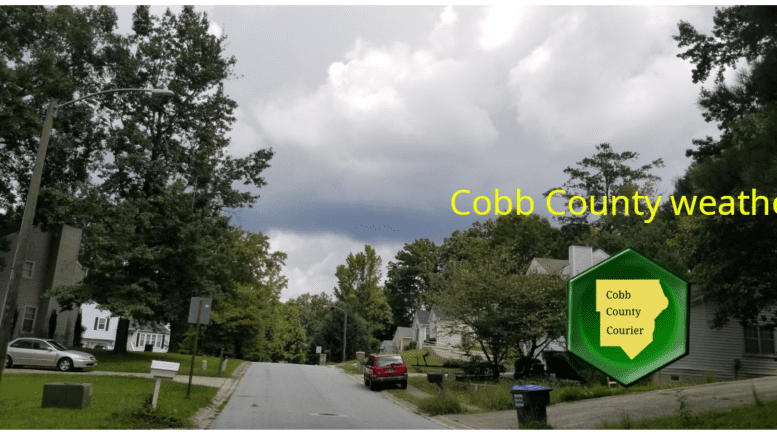The National Weather Service issued a hazardous weather outlook for Cobb County on Monday December 19, 2022 due to a rapidly approaching system expected to bring cold rain this evening and extreme temperatures later in the week.
What is in the statement?
The statement gives the following details:
“This Hazardous Weather Outlook is for portions of North and Central Georgia.
“.DAY ONE…Today and Tonight…
A fast-moving system is expected to bring a cold rain to the area
starting late tonight through Tuesday evening. There is a small
chance that the rain could begin as light freezing rain across the
higher elevations of northeast Georgia, by early Tuesday morning.
Impacts at this time, are expected to remain minimal and
isolated.
“.DAYS TWO THROUGH SEVEN…Tuesday through Sunday…
The main story continues to be the extremely cold temperatures
that are expected to spill across Georgia, Thursday night into
Friday morning. High temperatures may struggle to get out of the
20s and lower 30s on Friday across much of the area, with lows
bottoming out between 5 and 20 degrees Friday night. Factor in the
gusty winds that will occur with this powerful storm system, and
wind chill values could get as cold as 5 to 15 below zero for
parts of north Georgia.
“Across mainly north and west Georgia, the potential for some
wintry precipitation exists as well, as rain quickly changes to
snow before ending late Thursday night into Friday morning. Any
accumulations are expected to minimal, generally less than an
inch, but the concern for icy conditions, even due to residual
water on the roads, will increase as temperatures drop well below
freezing by Friday morning.”
What is meant by “isolated” and “scattered”?
The NWS defines “isolated” as follows:
A National Weather Service convective precipitation descriptor for a 10 percent chance of measurable precipitation (0.01 inch). Isolated is used interchangeably with few.
“Scattered” has the following definition:
When used to describe precipitation (for example: “scattered showers”) – Area coverage of convective weather affecting 30 percent to 50 percent of a forecast zone (s).
In other words isolated means a few showers, scattered means the showers are likely to cover 30 to 50 percent of the affected region.
What counties are affected?
The following counties are included in the hazardous weather outlook:
Baldwin, Banks, Barrow, Bartow, Bibb, Bleckley, Butts, Carroll, Catoosa, Chattahoochee, Chattooga, Cherokee, Clarke, Clayton, Cobb, Coweta, Crawford, Crisp, Dade, Dawson, DeKalb, Dodge, Dooly, Douglas, Emanuel, Fannin, Fayette, Floyd, Forsyth, Gilmer, Glascock, Gordon, Greene, Gwinnett, Hall, Hancock, Haralson, Harris, Heard, Henry, Houston, Jackson, Jasper, Jefferson, Johnson, Jones, Lamar, Laurens, Lumpkin, Macon, Madison, Marion, Meriwether, Monroe, Montgomery, Morgan, Murray, Muscogee, Newton, North Fulton, Oconee, Oglethorpe, Paulding, Peach, Pickens, Pike, Polk, Pulaski, Putnam, Rockdale, Schley, South Fulton, Spalding, Stewart, Sumter, Talbot, Taliaferro, Taylor, Telfair, Toombs,
Towns, Treutlen, Troup, Twiggs, Union, Upson, Walker, Walton, Warren, Washington, Webster, Wheeler, White, Whitfield, Wilcox, Wilkes, Wilkinson
About the National Weather Service
The National Weather Service (NWS) is a part of the National Oceanic and Atmospheric Administration (NOAA).
The NWS describes its role as follows:
“The National Weather Service (NWS) provides weather, water, and climate forecasts and warnings for the United States, its territories, adjacent waters and ocean areas, for the protection of life and property and the enhancement of the national economy.
“These services include Forecasts and Observations, Warnings, Impact-based Decision Support Services, and Education in an effort to build a Weather-Ready Nation. The ultimate goal is to have a society that is prepared for and responds to weather, water and climate events.”
